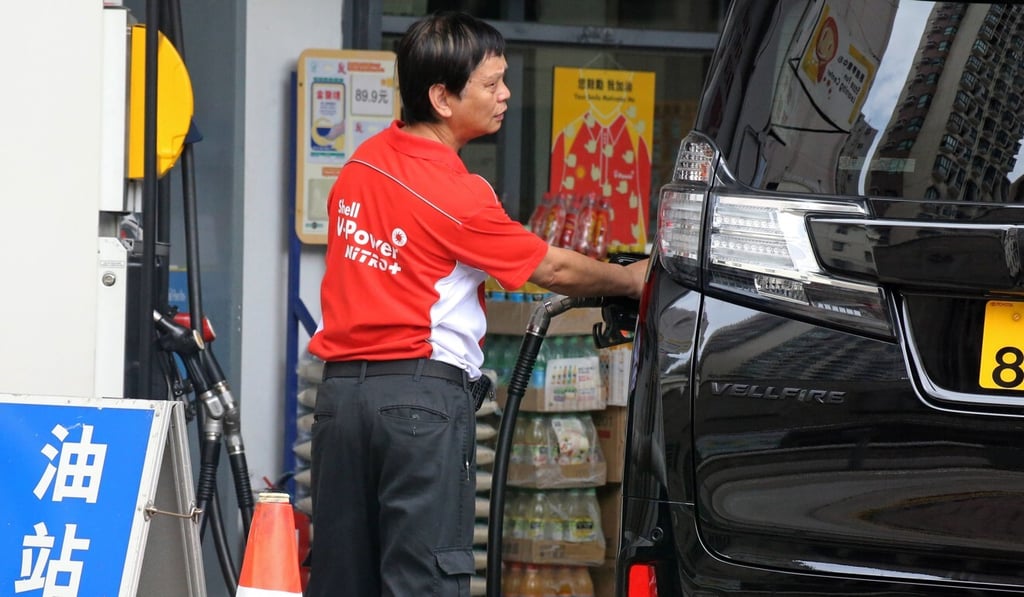Advertisement
Why do Hongkongers pay sky-high prices for petrol when international oil remains at multi-year lows?
- The cost of land on which petrol filling stations are built has risen by over 400 per cent in the last 10 years
- Fuel retailers say there are a range of factors for the delay in lower prices to be reflected at the pump, including high inventory levels, government tax, salaries and land costs
Reading Time:4 minutes
Why you can trust SCMP

International oil prices may have declined to multi-year lows, but Hongkongers continue to pay elevated prices for petrol. In fact, Hong Kong has the dubious distinction of having the highest pump prices in the world.
Advertisement
Industry observers say this is mainly due to surging land costs for building fuel stations, which have increased by more than 400 per cent in the past decade, thanks to Chinese oil companies’ rampant expansion.
Even as crude prices remain depressed amid an all-out price war between the world’s top producers Saudi Arabia and Russia, and sinking demand due to the coronavirus pandemic, there is a time lag for lower prices to be reflected at the pump due to retailers’ inventory-keeping and other costs, say operators.
“Besides, import cost, government duty, land costs, wages, marketing and overhead expenses all impact our retail pump prices,” said a Shell Hong Kong spokesman. “Indeed, the increase in land costs has been much higher than other costs.”

Advertisement
Petrol retailing in Hong Kong is dominated by five players – ExxonMobil’s Esso, Chevron’s Caltex, Shell, Sinopec and PetroChina – which operate 182 fuel stations between them. Sinopec and PetroChina both started their retailing operations in 2004.

Advertisement